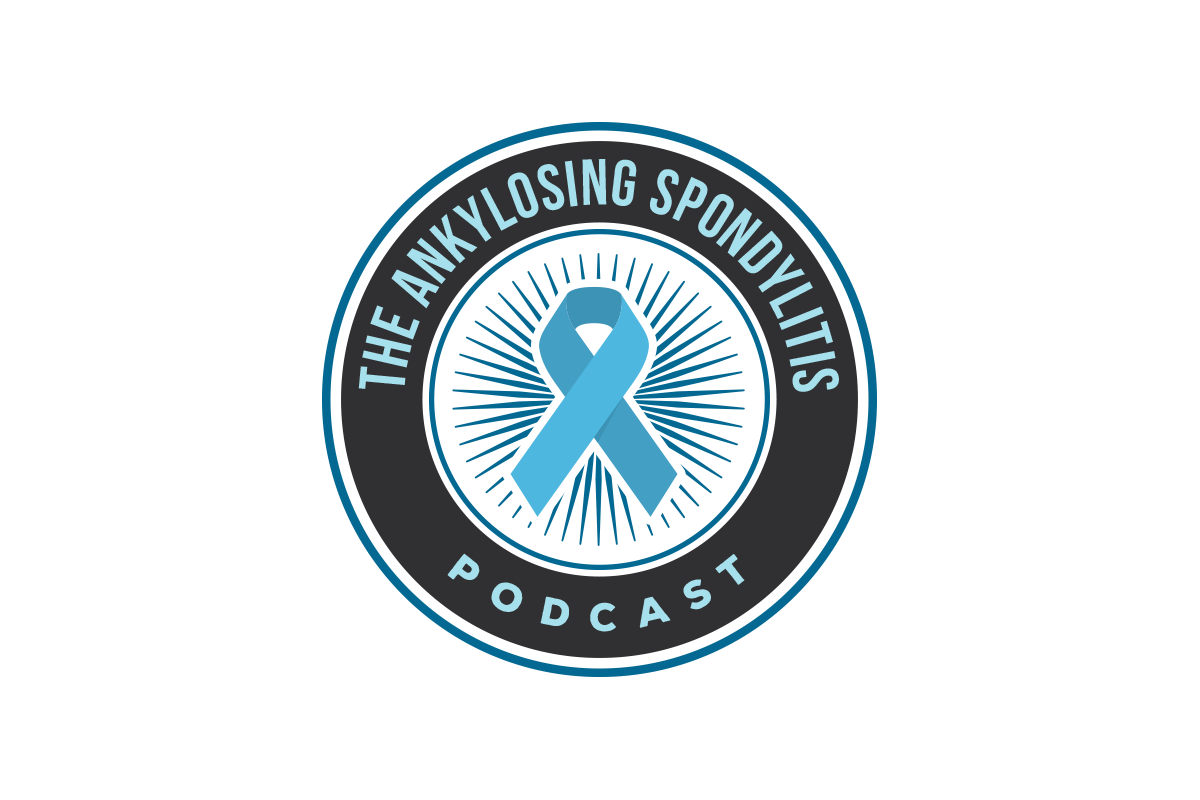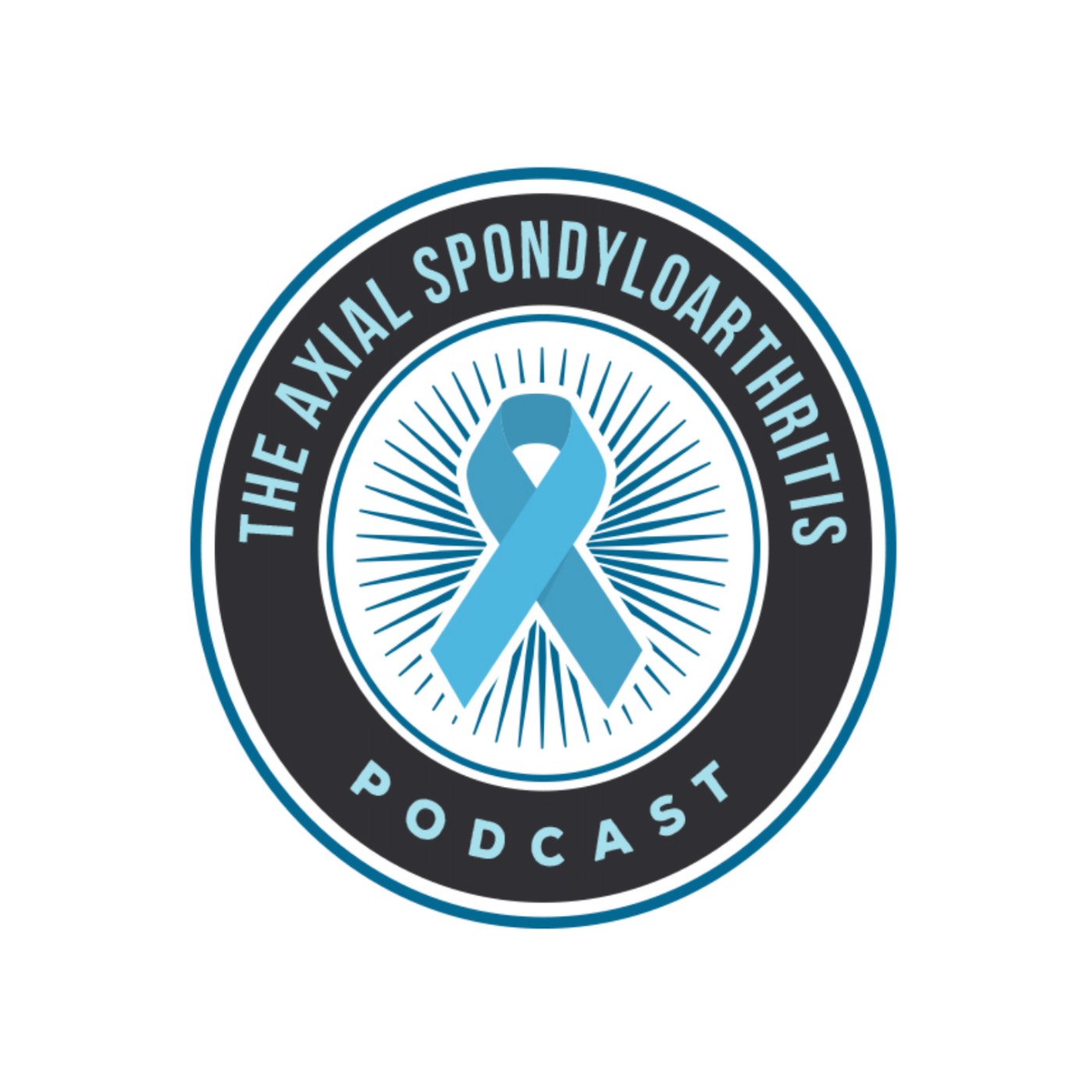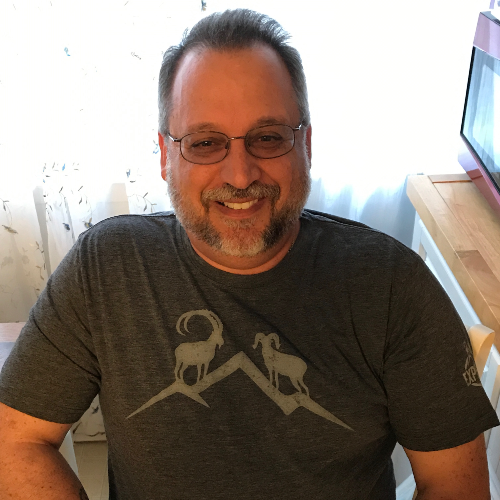Episode 54
Chronic Pain - Dealing with the Guilt
Hello, and welcome to this episode of The Ankylosing Spondylitis Podcast, I wanted to take care of a couple housekeeping items. First and foremost, I got a download the other day from the 91st country to have at least one download take place. And that was a download, a single one that came out of Iraq. So to whoever did that, I hope you enjoy the show. Welcome. I hope you download a bunch more to listen to and are able to interact through the spondypodcast.com website. Let me know who you are and if there's anything I can do to try and answer any questions, I look forward to interacting with all the listeners across all 91 different countries where downloads have coming from. That just blows my mind. It's just such an amazing thing to think of that we're all connected by this one thing called Ankylosing Spondylitis.
And with that I had a review come in and I wanted to touch base on this and read it because it's also going to delve into something to do with the topic today. The person wrote “Finally a diagnosis. Thank you for your podcasts. Yesterday I was diagnosed with AS. It only took them nine and a half years. I’m practically bedridden at this point is advanced so far. Can it get better?” From Gigi Goodwitch in the United States, GG, go to spondypodcast.com and reach out and let me know if it starts to get better for you. My answer to that is, you know, can it get better, maybe maybe with the having the diagnosis, you can finally get the medications that you need to help alleviate the pain, the inflammation and bring you some benefit and no longer be bedridden. So again, I really hope that you reach out through the website spondypodcast.com so that I can get an update and know how you're doing and then for anybody listening, I've seen the numbers going up again and it's fantastic. Go out to spondypodcast.com, sign up for the newsletter, and I'll be sending one out here in the next few weeks. And I've got some special items coming up, we're going to do something a little bit different with listeners from few different countries to bring you an episode that I think will be really unique.
But on with today's show, well, when I looked at the websites, because I like to read a lot of the posts that get done on the various forums on Facebook, and one of the things that I saw discussed over and over recently, is something that I can really understand and empathize with. And that's with all of us having chronic pain, how do we deal with the burden of guilt? And I had come across an article from a website called despite Pain(despitepain.com) that I had been wanting to work into a show, and you'll find a link to the website in the show notes but the website is Chronic Pain. How can we overcome the burden of guilt? This was done back in December of 2018. Again, from the website despite pain, it was pretty interesting because I really can understand this, you know, the guilt of why me the guilt of, I can't do what I want to do. I can't run around with my friends the way I want to run around with them or my kids or my spouse. All of these things about why am I the one dealing with this? And I can tell you, that's something that I dealt with for a long time, especially pre Internet days. I was diagnosed a long time ago, 36 plus years ago, and there was no Internet, there was no way to connect with other people that had Ankylosing Spondylitis. I was just given this diagnosis. I was 14 years old, kind of put out there. You know, good luck. And it really changed a lot of the trajectory of where I had envisioned my life as a young man going and what I ended up doing, it's completely changed everything. And now, with going on disability, it's brought me to the ability to do this show and connect with so many people, but back to guilt. You know, we struggle with the pain. We all have different levels and different styles of pain. And we struggle with the stress that that pain brings about, and how we live with it, how we deal with it. And sometimes we struggle with all consuming guilt, which can ultimately affect both our mental and physical health, as any therapist will tell you. Guilt is a huge weight to be chained to, and we can't carry it around. Instead, it something that you drag along. Guilt doesn't help you. It's not something that you easily bear. It's a challenge for all of us. So how do we get rid of it? What do we do? How do we move forward?
Well, they say pain is like a four by four gas guzzler. It wants more than we can afford. Our tank empties quickly, we run out, we're stranded as we have no reserves, and we need to wait before we can afford to refill. Sometimes it takes days even weeks before we can refill that tank when we burden ourselves with the guilt that we carry, or the tank empties even faster because guilt uses an incredible amount of energy. Our energy is such a scarce commodity. If we could ditch that guilt, it would free up that energy, which is already in short supply. We simply don't have enough of it to cope with everyday life. Therefore we need to try to stop that wastage. That is so true, there's many times when I think about the things that I need to do for a given day, whether it be running errands, and let's say that I need to run errands to two or three different places. Well, there are times where after I run that first errand, I don't have the energy to do anymore, they might need to be done. I just can't do them. And so it has to be addressed. It has to be looked at as far as how do I best manage this finite resource, this energy that I have and if I'm carrying all this Guilt behind me dragging it along is that just wasting energy? Chances are Yes; we can't let ourselves be burdened with guilt. It's a difficult emotion to stop perhaps some of the following reasons for feeling guilty. Sound familiar? You believe you're a burden to your family; you don't have the energy or the capability to do everyday tasks and chores or look after your family. You may be unable to work, therefore unable to provide financially to the household. If you can't work, you might feel that you can't pull your weight because of the pain and lack of energy. You might also feel guilty about taking sick leave because you're letting other people down. You feel like you need to depend on other people too much, both financially and physically. You might be a student struggling with coursework, you don't visit people or keep in touch enough, or you feel that you let enough other people down when you need to cancel plans last minute, due to the unpredictable nature of your pain. You blame yourselves because you have no social life. You're always tired. You need to sleep a lot you have put on weight you're unable to exercise, you feel guilty because this is not the person you want to be. You forget things and lose track of conversations because of brain fog due to the pain or medication, or both. You might believe you're not good enough, not good enough at what you do. Not good enough at being a husband, a wife, a parent, a child, sibling, friend, you know, because that pain affects everything in your life. And then lastly, you just feel guilty for no other reason than for being you. Nobody should ever feel guilty for being who they are because they live with chronic pain. It's not their fault. You know, you didn't ask for it. So you don't deserve it. You shouldn't feel guilty. So how do I overcome this burden of guilt? Well, you really need to look at ways to rid yourself of the guilt because it's unnecessary. It's damaging to not only your health but your well being besides that you have more than enough to put up with with Ankylosing Spondylitis besides having to worry about carrying extra guilt around. So here's 12 tips that the website lists to help with trying to ditch the guilt.
Number one, make a list. Try making a list of reasons why you feel guilty, study each reason and ask yourself, if you could do something differently. Most likely, you'll find that you are doing the best you can therefore you have no reason to feel guilty.
Number two, ask for reassurance. You might think you are a burden. But your friends and family most likely don't explain to them how you're feeling because it's better to talk rather than keep it into yourself. If your friends or family does tell you that you are a burden, then you really need to think those relationships, you really need to see if those are people that you can remove from your life, either in the short term or permanently.
Number three, ask for help. This one was very difficult for me. I had to finally realize that letting people help me was not a sign of weakness. So if you're struggling to look after your children, tell someone and when people offer help Take it without guilt. That's what got me. Never feel bad about getting help you live with a chronic condition, many of them don't.
Number four, set priorities. Decide what tasks and chores are most important. Everything else can wait for a better day. And again, ask for help. Don't put yourself on a guilt trip for not cooking elaborate meals, or having a toddler's fingerprints on the windows. Those things don't matter in the long run, do what you can do. I'm on a cane. When I clean my kitchen and able bodied person it would probably take them half an hour 45 minutes. Me it takes two hours. It's a lot of energy to use. So it might not always be the most organized, you know, kitchen around but it's clean and it works.
Number five, see your doctor, people with chronic pain can often suffer from depression and anxiety which can lead to feelings of insecurity and guilt. Perhaps medications and or counseling could help or something like Meditation. I know you're thinking all great, but no, I'm I, I'm telling you there are ways to look at doing meditation that can really be beneficial. I was a big non-believer in it until I actually started practicing it.
Number six, learn to say no without guilt. It takes time to learn. But saying no is actually self-care. It's your pain. And you know how you'll suffer if you do something? If it's worth some extra pain, you might as well say yes and go for it. If it's not worth it, say no without guilt.
Number seven alternatives. If you can't do something, try making alternative plans. You know, rather than go out for coffee with your friends, ask them to visit you do something that suits them. And you know, as we're dealing with this whole COVID thing, you're probably not going out anywhere or going very limited places. But you know what, if you want to meet outside and that's acceptable in your area, you want to sit on the porch and talk to somebody Go for it if it works for both people, great.
Number eight, it's not my fault. Write these words anywhere. You'll see them throughout the day on post it notes on the fridge or make it your computer screensaver. If you keep a journal write the phrase on every page. It's not your fault. You didn't ask for Ankylosing Spondylitis? What is your controllable item? And that is how you deal with it. Do you overcome as best you can do you push forward as best you can and not let it beat you.
Number nine realistic goals. set realistic goals. Small achievements can be huge victories. If you miss a goal one day, don't worry. Because tomorrow is another day and you'll just tackle that chore the next day or let somebody help you with tackling that chore. whatever needs to be done to get it done. It can wait.
Number 10 be proud of yourself. You live with pain every day. It's a constant struggle but you try Your best be very proud. Isn't that the truth, we all have this pain we all need to adapt. And to every day, go out and deal with it. A level of pain that many other people would have no way of functioning properly have they had a day or two of it, we deal with it day after day after day. So be proud of what you can do. Be happy with the things that you can do. not focusing on all the things that maybe you can't do.
Number 11 love yourself. It's okay actually imperative to love yourself. Spend time on yourself. Be kind to yourself, do something you love hobby read, go to a spa. You know, I love to read. So I do spend a large amount of time reading. Could be fiction books could be stuff related to a future episode for the show. Who knows, but I like to spend a lot of time reading and that's for me. Do that for me.
Number 12 advice you'd give to a friend. Finally, ask yourself this question. What advice would I give to a friend and my exact position? The answer will probably be ditch the guilt. Whatever you tell a friend is probably what's the best thing to do for yourself.
So, ultimately, you know, I hope you don't live with this burden of guilt, because of the chronic pain. If you do, I hope you can work on overcoming it. If you have access to go visit with a therapist, either online or in person, and you need that help to overcome the guilt. Do it please take advantage of it. Because ultimately, you're going to become a better person for dealing with it. And you being a better person means that everybody involved in your life, gets to see a better person and interact with a better person. So again, I'd love to hear how everybody's dealing with this. Please go to spondee podcast calm and Go to the contact page. Let me know what you're doing. Let me know how you overcome dealing with guilt. I'd love to hear it, and we might be able to share those on a future episode. Take care, love yourselves, and I look forward to talking to you again next week.
https://despitepain.com/2018/12/02/chronic-pain-how-can-we-overturn-the-burden-of-guilt/
Joy Organics follow link to access CBD learning guide and full range of products
Affiliate Links can pay a small commission on any products bought. It doesn’t affect the price you pay, but will help support the show.


